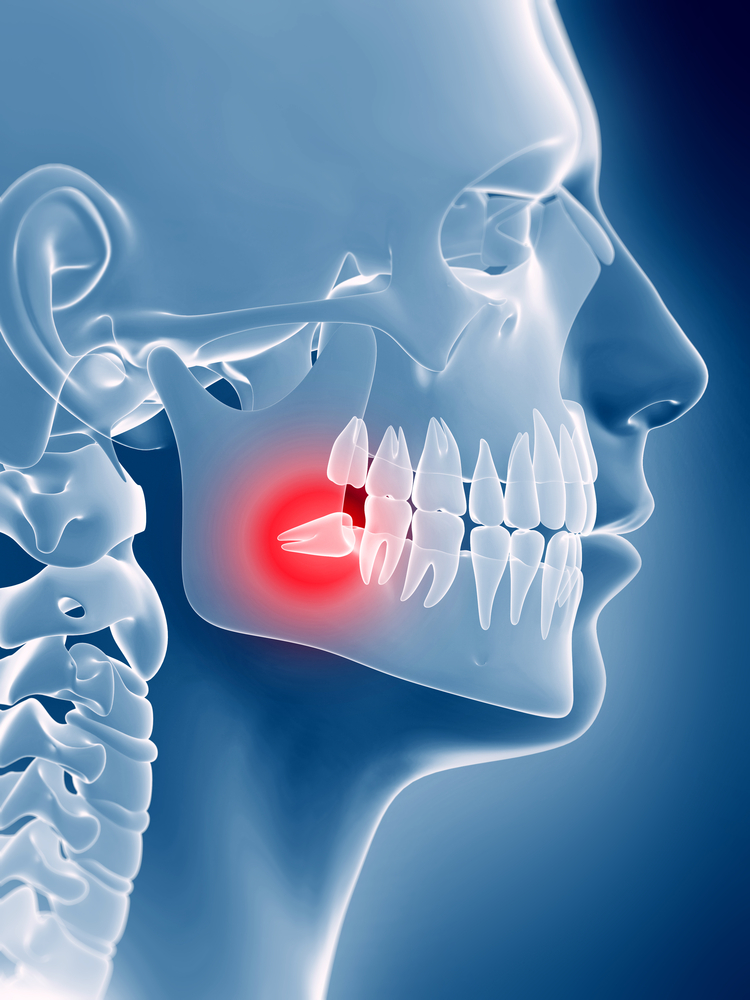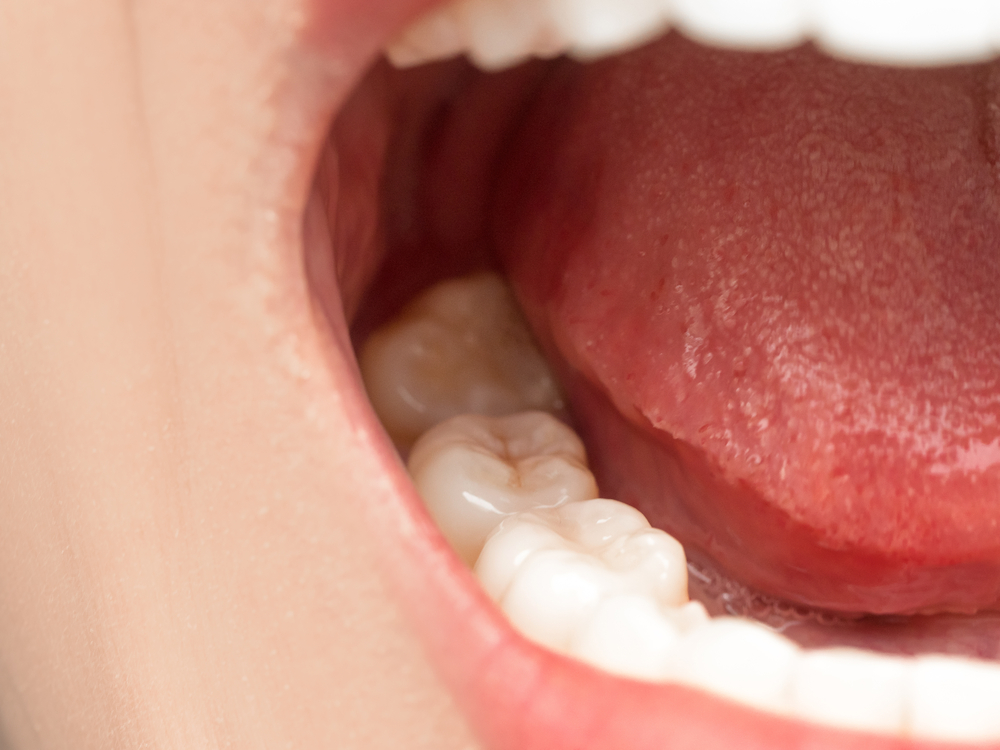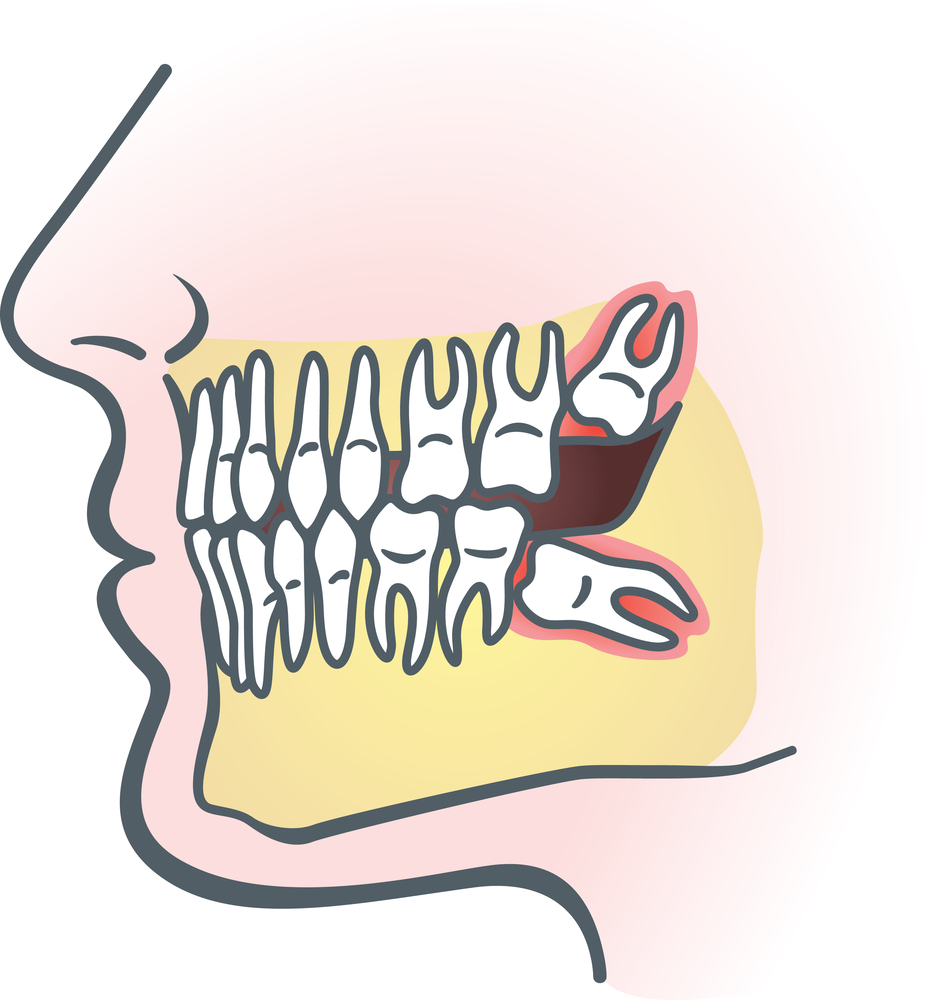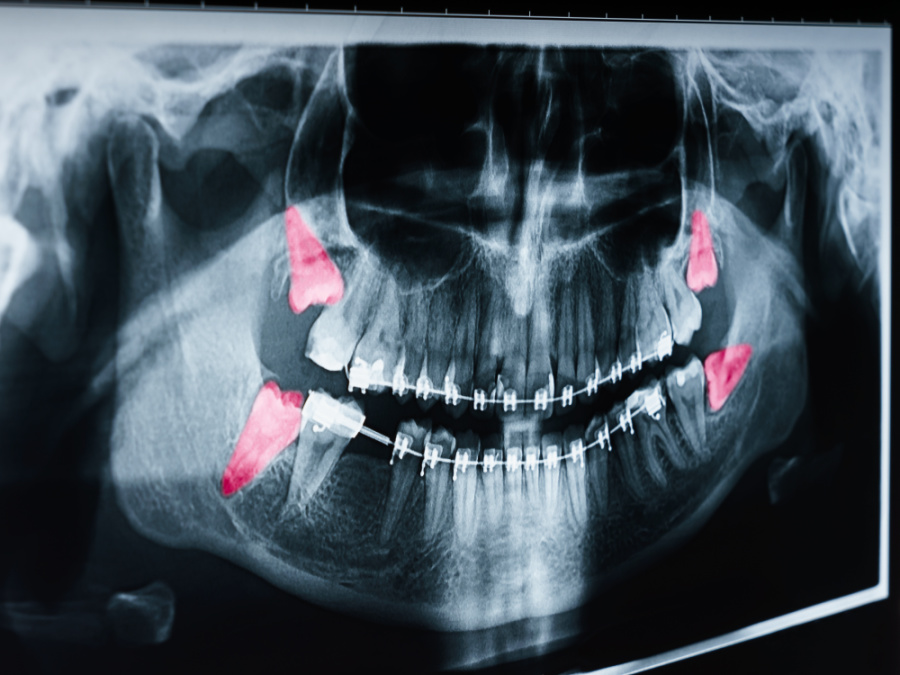Yes, I know: the wisdom teeth have an important-sounding name, but they have no purpose in your dental formula. They are additional molars that usually emerge during your teenage years (mainly from 17 to 21).
Sometimes, these teeth can be problematic for you, causing overcrowding or growing at awkward angles and leading to serious dental problems. For this reason, 5 million Americans get their wisdom removed each year, costing about $3 billion.
Knowing when the wisdom teeth are coming in is key to helping you avoid pain and unwanted procedures with an oral surgeon. This post will take you through seven common signs that indicate that your wisdom teeth are coming in.
Let’s dig in!

What are wisdom teeth?
Wisdom teeth are the last permanent teeth (third set of molars) that come last and furthest back in your mouth, usually during your late teen years. There are usually four wisdom teeth – two in the lower jaw and two in the upper jaw – although some people have fewer, more, or none.
Some wisdom teeth erupt without leading to any problems, but others lead to issues and may need removal, among other orthodontic treatments. Your dentist may advise a wisdom teeth removal if it grows at an odd angle or is impacted (becomes stuck below your gum’s surface).
Usually, the main reason your wisdom teeth are at risk is that your mouth doesn’t have room for four new molars. If that’s the case, you need the wisdom teeth removed.
How do I tell if wisdom teeth are coming in?
Knowing when your wisdom teeth are coming in is key to avoiding unwanted procedures. Here are seven indications that your wisdom teeth are coming in:
Irritation around the gums
With mild periodontal illnesses prevalent, most individuals will experience dental irritation at least once in their life without taking caution. However, if the pain is at the back of the mouth and at the right time, it may not be due to inconsistent brushing or flossing with force.
Instead, it may indicate that your wisdom teeth are coming in. If that’s the case, one of the common symptoms you’re likely to notice is a red swelling of the gums, which is expected given that new teeth are emerging.
Seek the help of a dentist if you experience gum irritation, but don’t be surprised if you’re told it’s the wisdom teeth coming in. If that’s the case, removal surgery will help cure the condition.

Bad breath
Let’s face it: impacted wisdom teeth are a nightmare for most individuals, but they are common. They often happen when there is not enough room to grow and start growing sideways or under the gum.
In most cases, the impacted wisdom teeth cause discomfort, intense pain, and irritation, but it’s also associated with another unpleasant symptom – bad breath. A wisdom tooth growing awkwardly can make pockets around the teeth and gum hard to clean, leading to bad breath.
Bacteria are often trapped there without regular visits to a dental clinic and will build up over time. If that’s the case, you may have a bad breath that doesn’t end no matter how much you clean your teeth.
See a dentist if the bad breath or unpleasant taste in the back of your mouth doesn’t go away with some floss or brushing.
Pain and aches
Wisdom teeth don’t only cause pain in the back of your mouth; they also lead to headaches and jaw pain. The first sore sign of a wisdom tooth will likely first be in the mouth but extend to other body parts, including the jaw and the head.
The wisdom tooth often forces other teeth to move aside as it makes enough space for itself. This leads to pain and discomfort in your jaws as the whole mouth tries to shift to make way for the tooth.
Sometimes, it becomes a challenge to open or close your mouth. In other rare-but-possible cases, the wisdom teeth will push against your sinus as they grow, causing headaches.
Infection in the gums
As the wisdom teeth start to come in, the roots are often positioned awkwardly, causing only part of the tooth to emerge. This leaves the gum tissue susceptible to active infections.
Even with small openings, food particles can easily get stuck there, making it very hard to remove, even with thorough flossing and brushing. This can turn into a severe pericoronitis infection if not corrected soonest possible.

Biting your tongue accidentally
Sometimes, the impacted wisdom teeth move your teeth aside as they make way for themselves. This process happens so slowly that you may not notice it for a while.
You may brush off the occasional redness or ache that comes with impacted wisdom teeth, but ultimately, you may notice that your teeth have moved aside to make room for the new teeth. If that’s the case, you’re likely you bite down on your tongue or the inside of your cheek.
If you notice this happening frequently, check for other signs of the impacted teeth or seek help from a dentist.
Look – the signs may be visible
An obvious indication that your wisdom teeth are coming in is their appearance. Stand in front of a mirror and, using a flashlight, look whether some teeth appear on the furthest end of your mouth.
You might not see the teeth, but a lump or swelling you’ve not seen before may indicate that new molars are coming in. If that’s the case, you don’t need a doctor to tell you that your wisdom teeth have arrived.
Dental X-ray
This is perhaps the best solution for knowing if your wisdom teeth are coming in. Specifically, the panoramic X-ray can help capture all your teeth and jaw bones in one image, revealing your wisdom teeth’s position and if they are almost coming in.
When do I see a dentist?
You should visit your dentist if your wisdom teeth are leading to severe pain. The physician will check your teeth and provide the best course of action.
If the dentist believes you need a wisdom tooth extraction, they’ll usually order an X-ray of your mouth. The X-ray image will give them a better view of your teeth’ position, including the impacted wisdom tooth.
As with all teeth problems, you should visit a dental clinic as soon as possible, rather than waiting for regular dental checkups.

Why should I have my wisdom teeth removed?
There is no need to remove your wisdom teeth if they’re impacted but aren’t causing any problems. This is mainly because there is no proven benefit to doing so, and the procedure carries the risk of dental complications, including dry sockets and infections.
Specifically, dry sockets happen when a blood clot from the surgery becomes dislodged from your tooth socket prematurely, leaving your jaw exposed. This scenario can be avoided by drinking fluids using a straw after a wisdom tooth extraction procedure.
However, sometimes the impacted wisdom teeth or teeth that have not fully broken through the surface of the gums can lead to dental problems. Bacteria and food debris may get trapped around the wisdom teeth’ edge, causing a plaque build-up.
In turn, the plaque build-up can lead to several problems, including:
- Gum disease – also known as periodontal disease or gingivitis- is a severe gum infection that damages the soft tissue or the entire gum line if not treated.
- Tooth decay – also called dental caries- are the permanently damaged areas in your teeth’ hard surface that develop into holes or tiny openings.
- Abscess – this is a collection of pus in your wisdom tooth or the surrounding tissue due to bacterial infection
- Cellulitis – this is a bacterial infection in your tongue, cheek, or throat
- Pericoronitis – this happens when plaque leads to a serious infection of the soft tissues surrounding your teeth
- Cysts and benign growths – although in rare cases, this may happen when the wisdom tooth that hasn’t cut through the gum develops a fluid-filled swelling (cyst)
A significant percentage of these problems can be treated using antiseptic mouthwash and antibiotics. If all other treatments fail to work, your dentist will likely recommend the removal of wisdom teeth.
Impacted wisdom teeth further explained
Impacted wisdom teeth occur when your third molars become fully or partially trapped in your jaw bone or gums. This can lead to several oral health problems, including tooth decay, oral infections, and gum diseases.
Surgical extractions are the most recommended treatment method for impacted wisdom teeth. Pain relievers are often administered to help you manage post-operative pain and discomfort.
Here are some of the most common impacted wisdom teeth symptoms:
- Red, swollen or bleeding gums
- Unpleasant taste in your mouth
- Swelling or mild pain on your face or jaw
- Halitosis
- Difficulty opening your mouth
Although you can’t prevent impacted wisdom teeth, you can minimize the risk of issues they cause by observing good oral hygiene.
The bottom line
Wisdom teeth don’t make you smarter; instead, they can be a cause of pain and other dental problems. They earn their name because they come in when you’re older, mainly in your early 20s.
This post provides you with the seven first signs of wisdom teeth. Good luck as you use it to know when your last teeth are coming and take the necessary precautions.
Leave a Reply